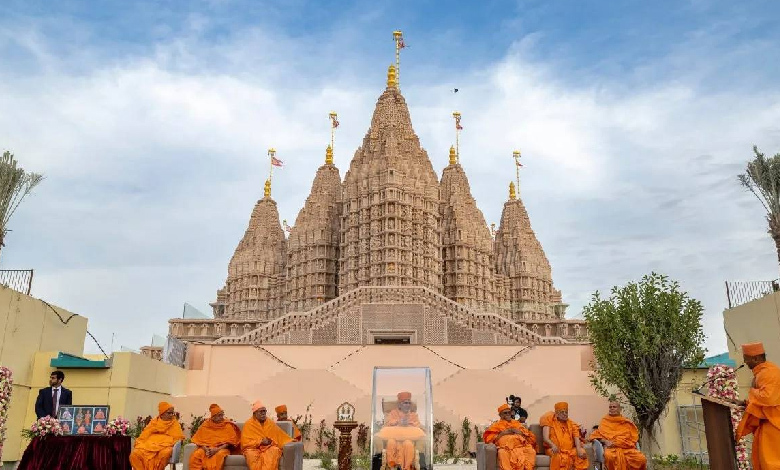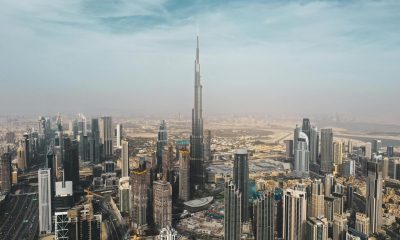The soon-to-be-inaugurated BAPS Hindu Mandir in Abu Dhabi is recognised as a powerful agent of interfaith and intercultural harmony. It highlights UAE’s commitment to tolerance and diversity, and is expected to attract millions from different faiths and backgrounds.
Indian Prime Minister Narendra Modi is scheduled to address the Indian community in the Emirates on February 13. The following day, he is set to inaugurate the temple, a majestic structure currently getting the finishing touches.
India’s ambassador to the UAE, Sunjay Sudhir, recently organised a preview of the temple, attended by ambassadors and spouses from 42 countries. He emphasised that what once seemed impossible has become a reality.
Abu Dhabi temple poised to be the largest in West Asia
Media reports suggest that with a construction budget of Rs 700 crore ($84.28 million), the upcoming BAPS Hindu Mandir in the UAE capital will showcase a meticulously designed facade, featuring seven spires representing each emirate of the country.
In order to bring the vision to life, pink sandstone was transported from the northern Indian state of Rajasthan. These stones are known for their durability against temperatures up to reaching up to 50C, reflecting the practical considerations for UAE’s climate.
In addition, Italian marble has been employed in the mandir’s construction, ensuring a touch of elegance. The temple marks a significant milestone as the region’s inaugural stone temple and is poised to be the largest in West Asia.
Complex reflects power of collaboration and innovation
The project also stands out as the first Hindu traditional temple to undergo comprehensive digital modelling and seismic simulation. Moreover, fly ash was integrated into the concrete mix of the foundation to reduce the carbon footprint.
The comprehensive facilities of the complex include a visitor centre, prayer halls, learning areas, exhibitions, a children’s sports area and thematic gardens. Hundreds of sensors continuously gather data on seismic activity, temperature fluctuations and pressure changes.
The BAPS Hindu Mandir in Abu Dhabi represents the power of collaboration and innovation. It is not just a place of worship but an achievement in sustainable infrastructure, showcasing the potential for religious spaces to become agents of positive change.
Read More: UAE’s Gulf neighbours possibly seeking to emulate Dubai’s massive success






















